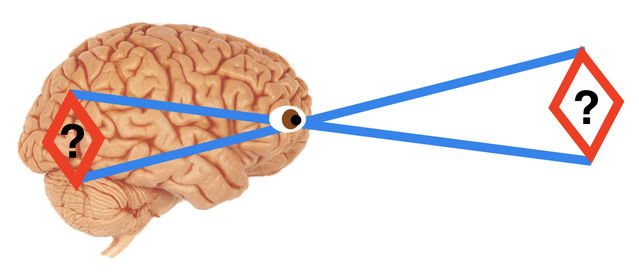Oxytocin
Chronocentrism
Why you feel like you're at the turning point in history
Posted January 18, 2017

Do you feel like we’re at a turning point in history?
Everyone feels that way because the brain sees the world through the lens of its own needs. You may say you're not focused on your own needs, but our natural self-centeredness is a neurochemical response that doesn't report itself in words to your verbal brain.
You can end up feeling battered by the tide of history in your quest to meet your needs. It helps to know why your brain chemicals respond as they do to events in the world around you. Then it's easy to understand your visceral sense of well-being or threat as you watch events unfold. (Find the full story in my new book, The Science of Positivity: Stop Negative Thought Patterns By Changing Your Brain Chemistry)
Dopamine and Chronocentrism
Your brain releases dopamine when you expect a reward. [1] It would be great to have that sense of excitement all the time, but the brain evolved to save its dopamine for opportunities to meet your needs instead of just releasing it all the time. Your brain defines opportunity with neural pathways created by the dopamine experiences of your past. Each brain promotes its survival by scanning the world for opportunity, and dopamine makes it feel good.
Social rewards get your attention when basic needs are met, and avoiding harm is the highest reward to our survival-seeking brain. Of course, rewards are not perfectly predictable, so anticipated rewards do not always materialize. This is why you're so eager for the next dopamine spurt, alerting you to the next potential reward.
Neurons connect when dopamine flows, so each brain releases it in contexts that triggered it before. In the state of nature, survival depended on accurate predictions about where to find food, but in the modern world, you can fill your head with all kinds of predictions about future nirvanas and apocalypses. These responses feel especially reliable when you see they are shared by others, thanks to the brain chemical oxytocin.
Oxytocin and Chronocentrism
Oxytocin creates the good feeling of social trust. [2] It would be nice to have that feeling all the time, but trusting everyone doesn’t promote survival. We have inherited a brain that rewards you with oxytocin when you find the safety of social support.
We like to think of ourselves as independent individuals, but in the state of nature, an isolated mammal quickly lands in the jaws of a predator. Natural selection built a brain that makes you feel safe when you stick with the herd. As you distance yourself from the group, your oxytocin falls, and the bad feeling motivates you to return to the good feeling of safety in numbers. A mammal who refused to run until it saw the predator for itself would be eliminated from the gene pool. Our brain is inherited from individuals who trusted the alarm calls of their herd-mates. It’s easy to respond to public events with a shared sense of alarm because oxytocin makes it feel good.
Neurons connect when oxytocin flows, so each brain seeks the comfort of oxytocin in ways that worked before. This is easy to see in others, but it's hard to see in yourself because your chemicals turn on and off without notifying the verbal part of your brain in words. The limbic brain cannot process language, so it is not on speaking terms with your verbal cortex. This is why your verbal cortex struggles to explain the things you do for oxytocin.

People have always looked at the world through a lens shaped by those around them, even as they strive to “think different.” This is easy to see in historical paintings, where each individual is dressed in the garb of their time period, even though each brain prides itself on its individual choices. Pride is a surge of serotonin, so let’s see how that chemical shapes our sense of being at the turning point in history.
Serotonin and Chronocentrism
Serotonin gives you a good feeling when you connect yourself to the march of history. A sense of social importance helps an individual do what it takes to spread their genes, and natural selection built a brain that rewards you with a spurt of serotonin when you assert your social importance. [3] But that spurt is soon metabolized and you have to gain another social advantage to stimulate more. It’s easy to see why people are so motivated to find themselves a place on the stage of public affairs.
Neurons connect when serotonin flows, so each brain seeks the good feeling of social importance in ways that stimulated it for them before. You may refuse to recognize your own urge for specialness, even if you're quick to notice and condemn it in others. Each brain struggles to stimulate serotonin in ways that don't risk its oxytocin and dopamine. Configuring public affairs in a way that makes you special is a non-violent, non-fattening way to do it. But that serotonin burst is soon processed and you have to do more to get more. When others seek it you may rail at their misguidedness, but when you seek it, you feel like you're just trying to survive. It's not easy being mammal!
Cortisol and Chronocentrism
We humans have a sense of crisis because we’re aware of our own mortality. We know history will march on without us someday. Think about this future threat triggers cortisol, which creates an immediate visceral sense of threat. We try to mask that bad feeling by stimulating our happy chemicals, so it's easy to see why we’re so eager for ways to stimulate them.
You stimulate serotonin when you see your actions having an impact on the larger world. You stimulate oxytocin when feel yourself part of a larger movement. You stimulate dopamine when you anticipate rewards to your efforts.
Each brain looks at the timeline of human history in reference to itself. It sees the past through the lens of what can meet its needs today. It sees the future through the lens of what stimulates happy chemicals today. This is why everyone who has ever lived has perceived themselves to be at the turning point in history.
You may say “it’s different this time,” but it’s useful to notice how often people say that. For example, when you study another time in history, you end up concluding that it too was “a turning point.”
You have power over your emotional ups and downs when you know how you are creating them. Find more information on this at the The Inner Mammal Institute.
[1] Predictive Reward Signal of Dopamine Neurons
References
Schultz, Wolfram (1998). Predictive Reward Signal of Dopamine Neurons. Journal of Neurophysiology 80: 1–27
Feldman, Ruth (2012). Oxytocin and social affiliation in humans. Hormones and Behavior 61, 380-391
Workman, L., & Reader, W. (2004) Evolutionary Psychology: An Introduction Cambridge University Press, p.321




